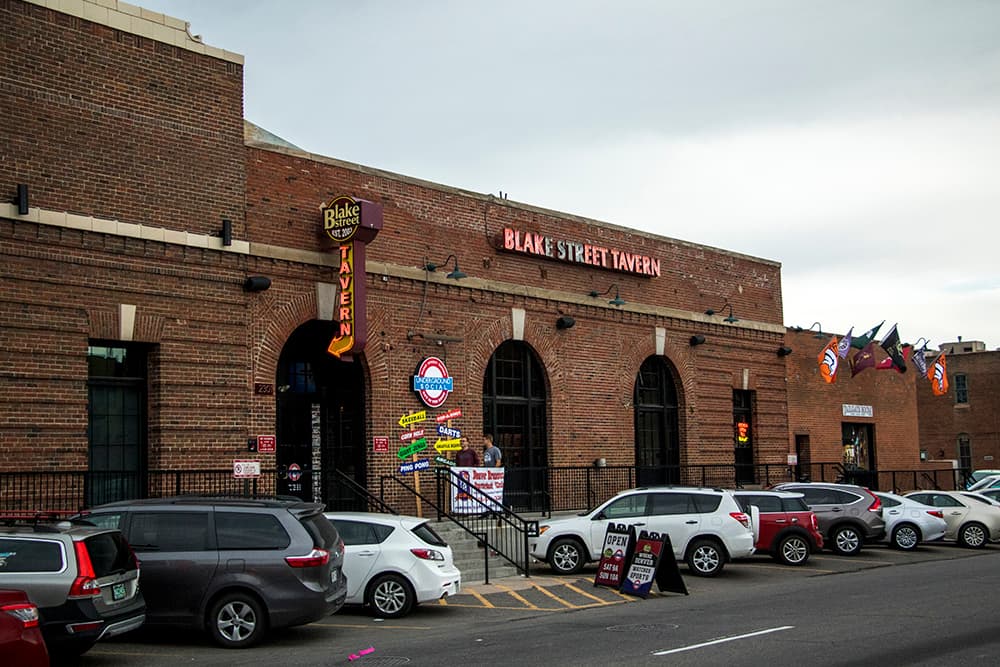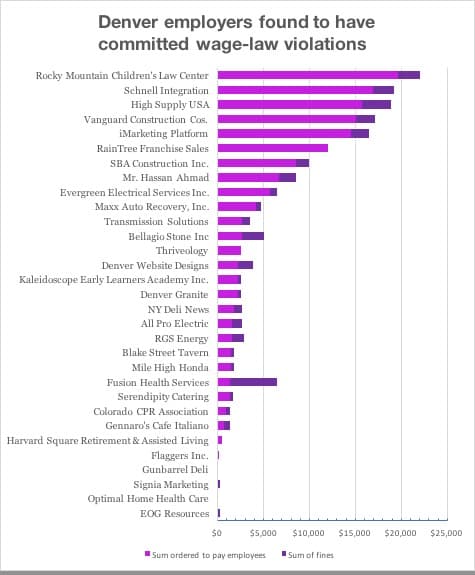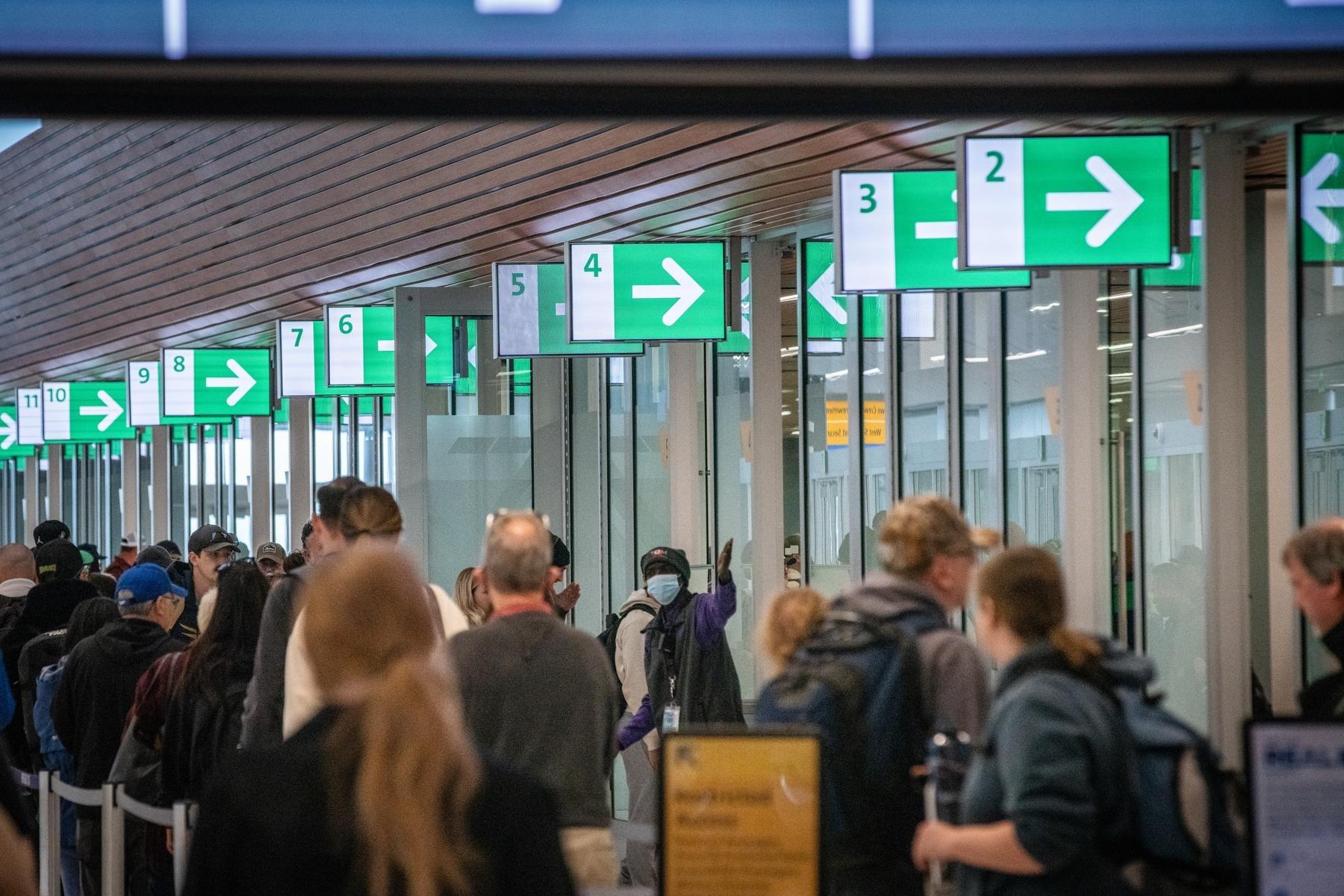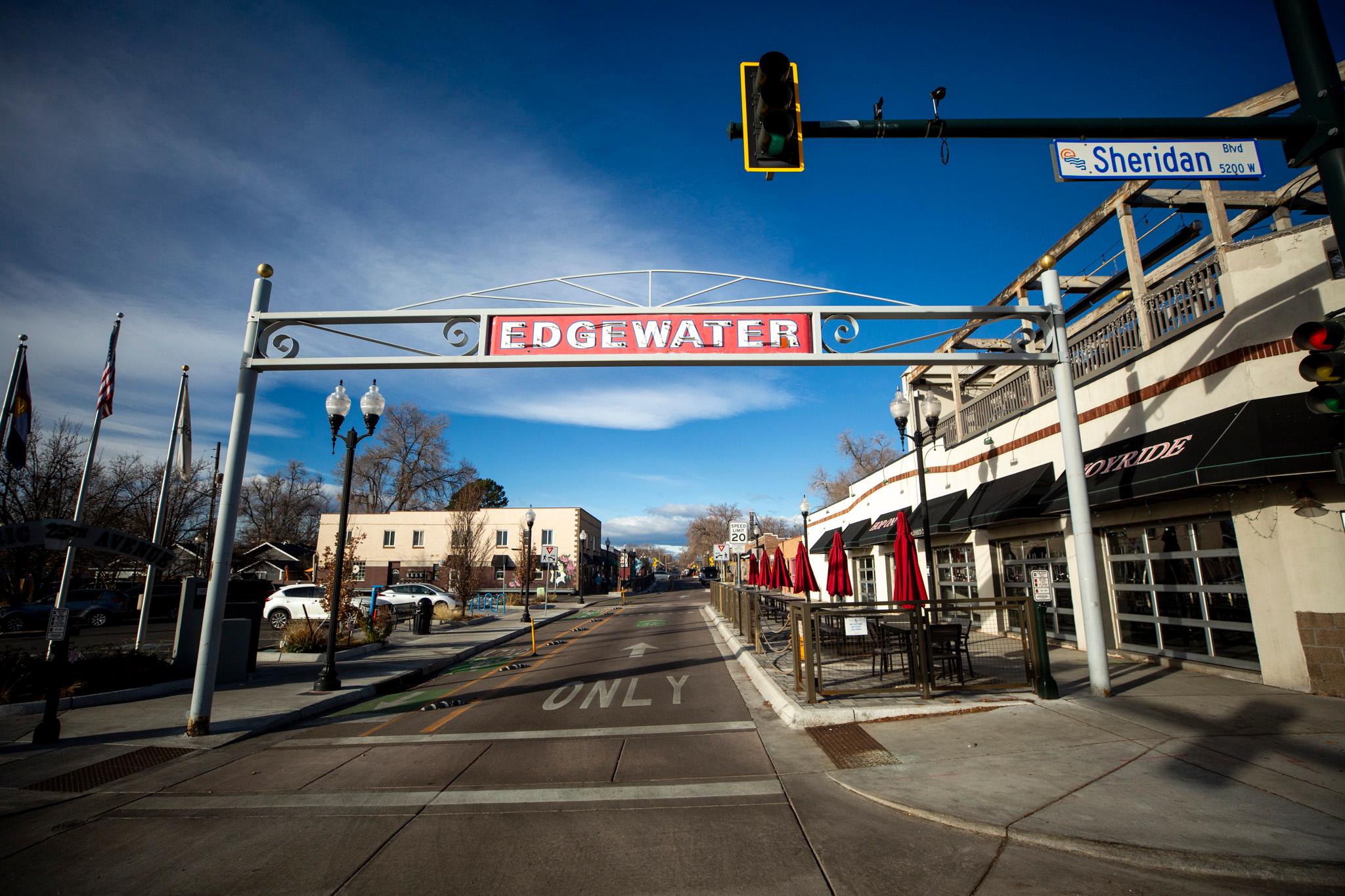
Colorado officials have determined that at least 31 Denver businesses cheated their workers on pay or violated other worker protections during a five-month period, according to data from the Colorado Department of Labor and Employment.
Altogether, the state department dinged the companies with $33,000 in fines and ordered them to pay workers $146,107 in back pay and penalties since April 13, according to the data shared this week.
The Colorado Department of Labor and Employment investigates claims of state wage-law violations. This year, the state agency started to share info on companies cheating their workers for the first time in decades.
The new openness around wage theft violations comes after Colorado legislators passed the Wage Theft Transparency Act in the spring. The act, signed into law by Gov. John Hickenlooper in April, clarifies that wage law violations are not confidential and should be released to the public.

"It's a great law," said John Philo, executive director and legal director of the Maurice and Jane Sugar Law Center for Economic and Social Justice. The Detroit-based nonprofit helps thousands of workers across the country fight employers who violate worker protection rules.
Workers can use the information from the Wage Theft Transparency Act when selecting jobs, Philo said. "The employer has an incentive not to get on the list."
Real impacts
Anyone without enough dollars in the bank could be put in a financially tough spot covering housing or medical costs if they miss a paycheck, Philo said. "I can think of dozens of cases here with people who are very low-wage workers where literally losing $1,000 or $500 sets their lives into terrible spirals."
Denver companies were ordered this spring and summer to pay anywhere from $0 to $19,255 for 34 claims by workers. The average amount the state ordered the companies to pay was $5,268, according to the data.
Three companies — Rocky Mountain Children's Law Center, iMarketing Platform and Evergreen Electrical Services Inc. — each had claims filed by two different workers.
It can take months if not years to get the money owed. The data from the state shows officials didn't make a final decision on claims filed in 2015 and 2016 until after April 2017. Businesses could then fight the state's decision in court or drag their feet on paying, incurring greater fines.

It's possible there are more than 31 companies operating in Denver that have committed wage-law violations. The labor data shared does not necessarily show where companies have workers in Colorado.
For instance, the state determined in April that Landry's Downtown Aquarium Inc. owed $2,205 in back pay, penalties and fines. Landry's has its headquarters in Houston, according to state information, but the company owns and operates the Downtown Aquarium and restaurant in Denver.
Statewide, 18 of the 146 wage-law violation cases were connected to companies with addresses in other states.
Not all violators are nefarious
Sometimes companies are unaware of overtime rules, how often they are required to give breaks, whether they have to pay out accrued vacation time when an employee leaves and other Colorado rules and regulations that all can result in penalties and fines if not followed, said Cher Roybal Haavind, director of government, policy and public relations for the Colorado Department of Labor and Employment.
"This is a point we cannot emphasize enough, we don't want to look at this on its surface and say 120 some odd employers in Colorado are bad actors because there are always a variety of circumstances under which someone did not get paid," Roybal Haavind said.
The owner of Schnell Integration, Rod Schnell, said Thursday that he ended up with a "mess" after negotiations fell through with someone who was managing and trying to buy his company.
"To be honest with you, a guy just came in and just sold us a bill of goods and told us he was going do all this stuff," Schnell said. "He was going to manage labor and manage dollars. And he didn't, and he came close to bankrupting the company."
In April, the state ordered Schnell Integration to pay an employee $16,875 in back pay and penalties and another $2,350 in fines.
Despite not being in good standing with the state for failing to file its periodic report, Schnell Integration is still operating and "working on" paying the employee who filed the complaint, Schnell said.
Philo said it's "extremely rare" in his experience with the Sugar Law Center to see companies end up on a wage-law violation through no fault of their own.
"I don't think anyone can get on that list accidentally," he said. "I do think someone people have more good faith or less good faith in their attempts to comply."
Business & data reporter Adrian D. Garcia can be reached via email at [email protected] or twitter.com/adriandgarcia.
Subscribe to Denverite’s newsletter here.












